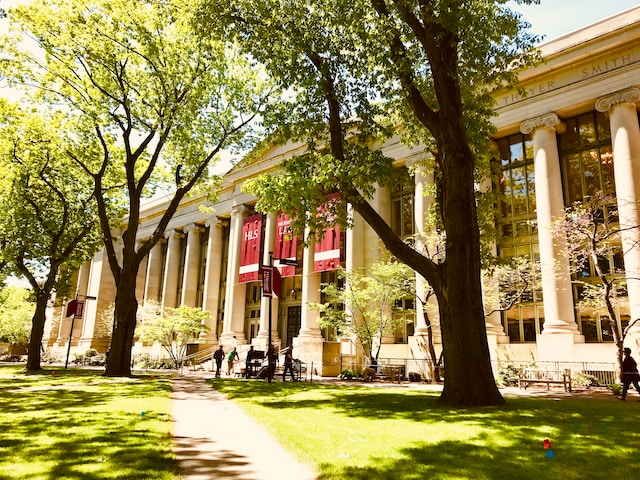Universities have long been recognized as knowledge creation, research, and education centres. Their role extends beyond traditional academic pursuits in today’s rapidly evolving world.
Resilient universities are now emerging as catalysts for social innovation, actively engaging with communities to address complex societal challenges.
This article explores the concept of resilient universities and their crucial role in empowering academic communities for social innovation.
Understanding Resilient Universities
What is Resilience in the Academic Context
In the context of universities, resilience refers to their ability to adapt, evolve, and thrive in the face of challenges and disruptions.
It encompasses the capacity to respond effectively to changing societal needs and contribute meaningfully to communities’ well-being.
Resilient universities embrace change, foster innovation, and prioritize social impact alongside their traditional academic functions.

The Evolving Role of Universities
Universities have evolved from being knowledge disseminators to becoming drivers of social change.
They are increasingly recognized as key players in addressing pressing global issues such as climate change, poverty, and inequality.
Resilient universities go beyond theoretical research and actively engage with stakeholders to create sustainable solutions.
The Need for Social Innovation
Address Complex Societal Challenges
Societal challenges are becoming increasingly complex, requiring innovative approaches and interdisciplinary collaboration.
Resilient universities act as hubs for social innovation, bringing together diverse expertise from various disciplines to tackle these challenges collectively.
By fostering collaboration, they create a fertile ground for developing and implementing transformative ideas.
Foster Collaboration and Interdisciplinarity
Interdisciplinary collaboration is essential for addressing multifaceted issues.
Resilient universities break down traditional silos and encourage collaboration between different faculties, departments, and research centres.
They facilitate knowledge exchange and create platforms for cross-pollination of ideas, enabling innovative solutions to emerge.
How to Build a Resilient University Ecosystem
1. Cultivate a Culture of Innovation
Resilient universities foster a culture of innovation by encouraging risk-taking, creativity, and entrepreneurship.
They provide a supportive environment that nurtures the growth of innovative ideas and projects.
Promoting an entrepreneurial mindset among students, faculty, and staff inspires the development of socially impactful ventures.
2. Nurture Entrepreneurial Mindsets
Entrepreneurial mindsets are crucial for driving social innovation.
Resilient universities offer entrepreneurship education and incubation programs that equip students with the skills and knowledge needed to turn their ideas into tangible solutions.
These initiatives encourage students to become changemakers and empower them to positively impact society.
3. Embrace Technological Advancements
Technological advancements are transforming the way we live, work, and interact.
Resilient universities embrace these advancements and leverage emerging technologies such as AI, blockchain, and IoT to address societal challenges.
They create spaces for experimentation and research, exploring the potential of technology to drive social innovation.
Creating Partnerships for Social Impact

Engaging with Local Communities
Resilient universities actively engage with local communities to understand their needs and co-create solutions.
They establish partnerships with community organizations, NGOs, and grassroots initiatives to ensure that social innovation efforts are contextually relevant and sustainable.
Working closely with the community fosters a sense of ownership and empowers individuals to drive change.
Collaborating with Industry and Government
Collaboration with industry and government entities is vital for scaling and implementing social innovations.
Resilient universities forge strategic partnerships with businesses, governmental agencies, and policymakers to leverage resources, expertise, and networks.
Such collaborations enable the translation of innovative ideas into practical solutions with broader societal impact.
How to Overcome Challenges and Resistance
1. Eliminating Institutional Barriers and Silos
Institutional barriers and silos can hinder the progress of social innovation within universities.
Resilient universities actively work towards breaking down these barriers by promoting interdisciplinary collaboration, fostering a culture of openness, and encouraging knowledge-sharing across departments and faculties.
They establish effective communication and collaboration mechanisms, enabling the free flow of ideas and expertise.
2. Scaling and Sustaining Social Innovation
Scaling and sustaining social innovation can be challenging.
Resilient universities address these challenges by developing support structures such as innovation hubs, funding programs, and mentorship initiatives.
They provide resources and guidance to help social innovators navigate the complexities of implementation, scaling their solutions for maximum societal impact.
How to Measure and Evaluate Impact

Develop Metrics for Social Innovation
Measuring the impact of social innovation is crucial for understanding its effectiveness and identifying areas for improvement.
Resilient universities develop appropriate metrics and evaluation frameworks to assess their initiatives’ social, economic, and environmental impact.
By collecting and analyzing data, they gain insights that inform decision-making and enhance the outcomes of social innovation projects.
Track and Assess Long-Term Outcomes
Long-term outcomes and sustainability are important considerations in social innovation.
Resilient universities track the long-term impact of their initiatives and evaluate their sustainability beyond the initial implementation phase.
They establish monitoring mechanisms to ensure ongoing assessment and improvement, making adjustments as necessary to achieve lasting positive change.
The Future of Resilient Universities
Embracing Disruption and Change
The future of resilient universities lies in their ability to embrace disruption and change.
They must remain agile and adaptive, continuously evolving to meet the evolving needs of society.
By fostering a culture of innovation, investing in research and development, and staying abreast of emerging trends, they can proactively shape the future and drive positive societal transformation.
Leveraging AI and Emerging Technologies
AI and emerging technologies hold immense potential for social innovation.
Resilient universities harness the power of AI to analyze complex data, identify patterns, and generate insights that drive evidence-based decision-making.
They leverage emerging technologies to develop innovative solutions and enhance their impact on society.
GRIT Project: Empowering Academic Communities with Cutting-Edge Innovations

In response to the increased demand for career guidance services caused by the COVID-19 pandemic, GRIT (Guidance Research and Innovation Tools) project has emerged.
This project leverages Artificial Intelligence (AI), Machine Learning (ML), gamification, and sentiment analysis to develop advanced tools for motivation and engagement.
With a focus on improving academic performance among students and young researchers, GRIT aims to address skill requirements for effectively tackling societal challenges.
Stay tuned for future updates on the GRIT EU project as it pioneers innovative approaches and fosters resilience within academic communities, empowering individuals and universities alike.
Together, we can shape a future where academic excellence and social innovation go hand in hand.
Conclusion
Resilient universities play a crucial role in empowering academic communities for social innovation.
They create an ecosystem that nurtures transformative ideas and solutions by embracing resilience, fostering collaboration, and leveraging emerging technologies.
They address complex societal challenges and drive positive change through partnerships with local communities, industry, and government.
As we look to the future, resilient universities will continue to be at the forefront of social innovation, shaping a more sustainable and inclusive world.
Frequently Asked Questions (FAQs)
Q1: How can universities foster a culture of innovation?
Universities can foster a culture of innovation by encouraging risk-taking, promoting entrepreneurship, providing support structures such as incubation programs, and creating spaces for interdisciplinary collaboration.
Q2: How do resilient universities measure the impact of social innovation?
A2: Resilient universities develop metrics and evaluation frameworks to assess the social, economic, and environmental impact of their initiatives. They collect and analyze data to gain insights into the effectiveness of their social innovation projects.
Q3: What are the key challenges faced by universities in driving social innovation?
Universities face challenges such as institutional barriers, silos, scaling and sustaining social innovation, and navigating complex collaborations. Overcoming these challenges requires fostering a culture of openness, establishing support structures, and developing effective communication channels.
Q4: How do resilient universities engage with local communities?
Resilient universities engage with local communities by establishing partnerships with community organizations, grassroots initiatives, and NGOs. They actively involve community stakeholders in the co-creation of solutions and ensure the relevance and sustainability of their social innovation efforts.
Q5: What is the future of resilient universities?
The future of resilient universities lies in their ability to embrace disruption and change, leverage emerging technologies such as AI, and proactively shape the future through social innovation. They will continue to play a pivotal role in addressing global challenges and driving positive societal transformation.


